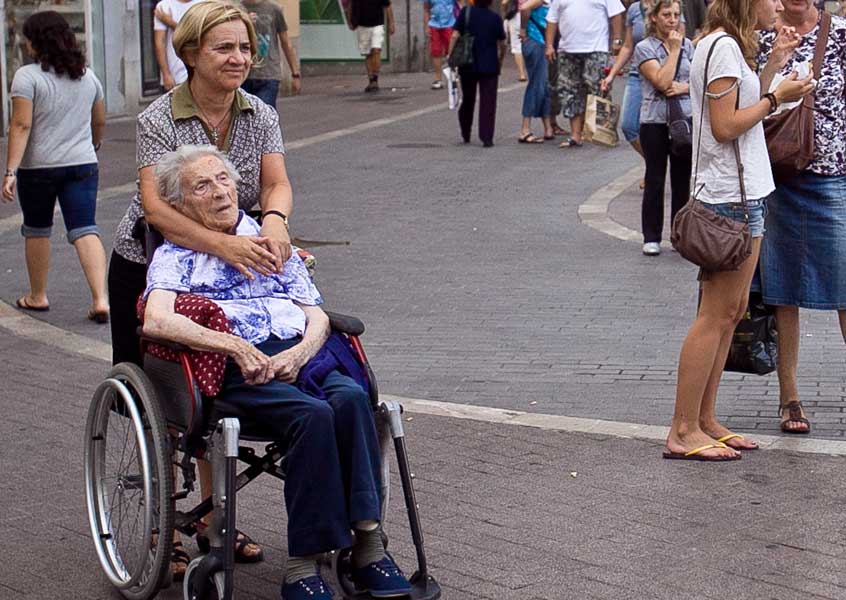What’s the problem?
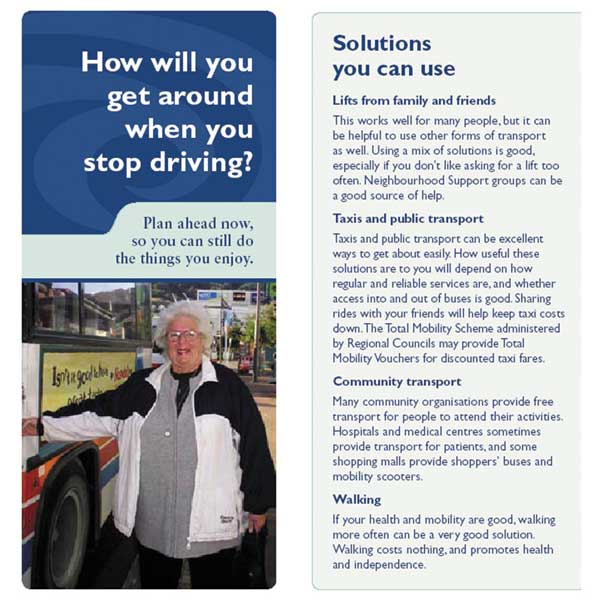
When you approach Gold Card age in New Zealand, you are handed a pamphlet like this one, above. When you stop driving, the State suggests you ask family and friends for a lift, use taxis and public and community transport. Or if your health and mobility is good, walk. It advises you plan ahead, but unfortunately the State has not planned ahead. Very few communities are designed for elders to walk. The destinations are too far apart; they are designed for driving.
New Zealand is unprepared for an growing ageing and infirm population. As a car-based society, its answer is retirement villages for those who can afford it, subsidised homes for those who cannot, and nursing homes for those requiring extensive care.
Ageing is natural and in most traditional societies, elders held a place of honour. They formed bonds with the very young, helping out stressed parents, but also passing on the stories that define their culture. They no longer work the stressful hours of adulthood, but they engage in settled work, sometimes pursuing activities that could not support a family during their younger years, but which gives them great joy and enriches their community.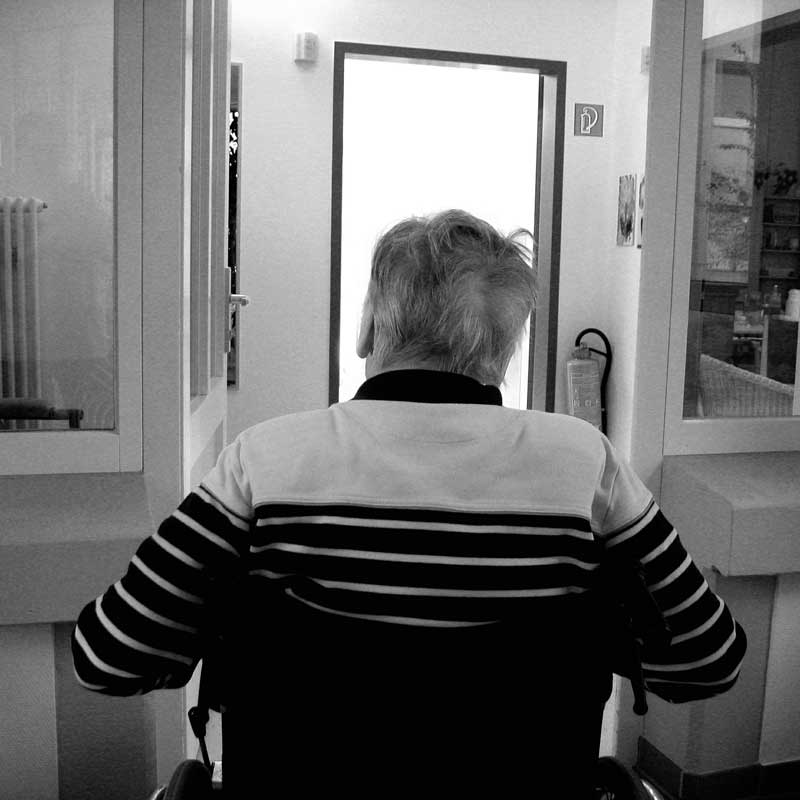
Future generations may look back at this era and view our treatment of old people in the same way this era looks aghast at slavery. We meet their physical needs, but we cut them off from society. Their sole role is to quietly wait to die without complaining or burdening society.
We need to return elders to their respected role within a complete community. This means provision of housing solutions that are affordable and accessible, beginning with downscaling into an autonomous ground floor apartment all the way to assisted living and nursing care that remains within the centre of each village.
And if we need a role model on how to do this, visit any marae.
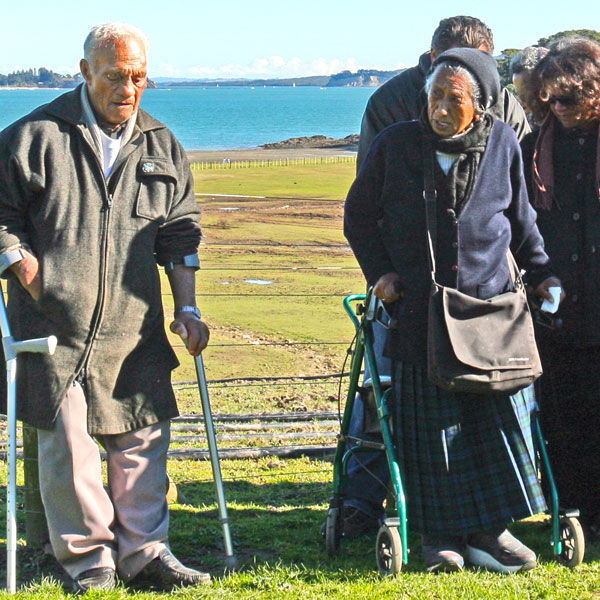
How a Market Town solves it
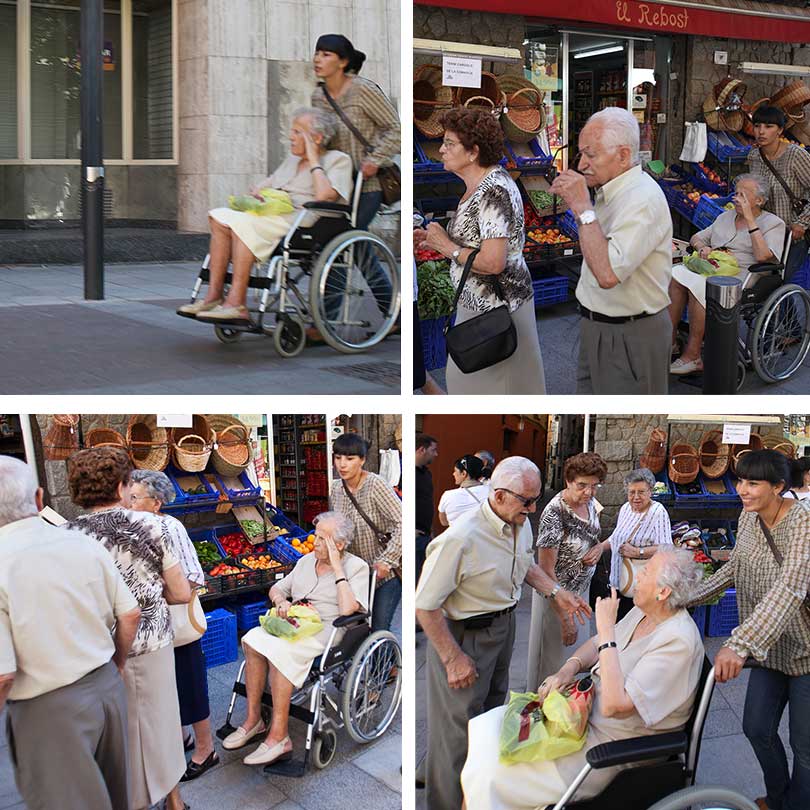
The montage above was taken by chance in a small town in Northern Spain on market day in the village. One may surmise the wheelchair-bound elder lives nearby and was wheeled by her caregiver to do some shopping. She encounters people she knows, and brightens up as they turn to greet her. She may be infirm, but she is part of a complete community that she can access regardless of her infirmity.
Market Towns are designed for all ages, all stages and all walks of life. Elders are integrated into community life that provides support through all the stages of infirmity.
It begins with autonomous ground-floor apartments purpose built within 50 metres of each village plaza. The windows have curtains, which the senior moves every day when they get up. Their neighbours know this is a signal they are OK. The walk to the village plaza is important. They meet their friends, sit in the sunshine, connect with others. To see this pattern, travel to places like Italy, like this plaza in Lecce:
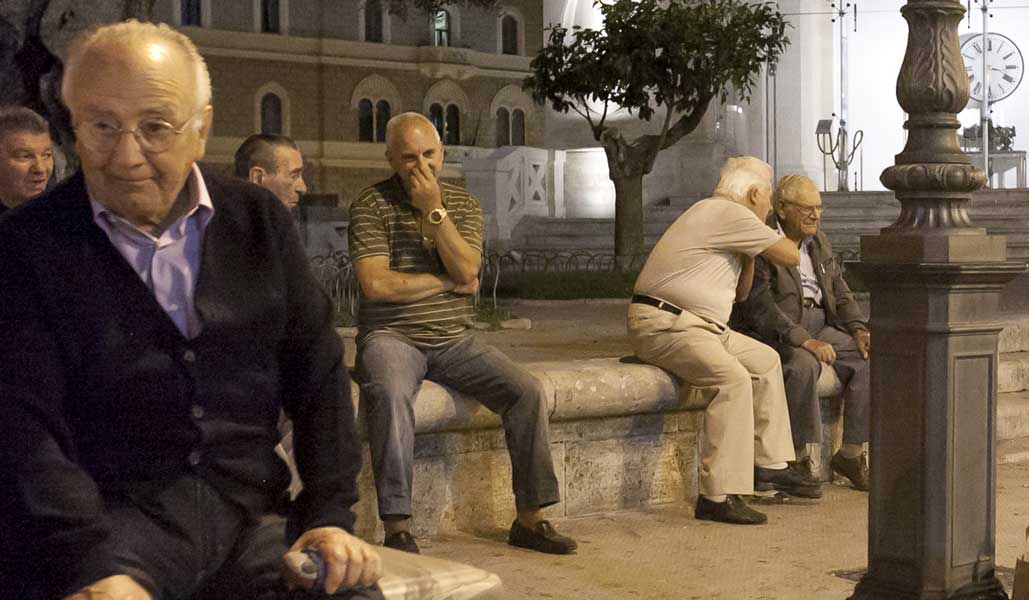
Or this taverna in Greece on a car-free island where elders gather daily to solve the world’s problems or discuss the current events in their village.
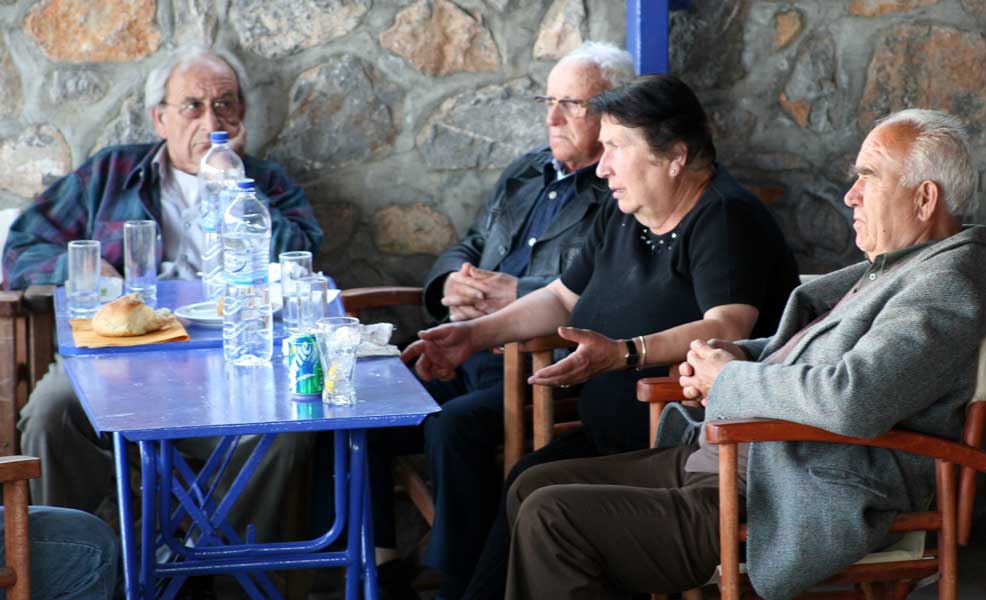
This stage is accompanied by settled work – work spaces designed for elders. This toy store cannot compete with a Toyworld franchise, but as a labour of love, the seniors bring joy to children while enjoying their settled work:
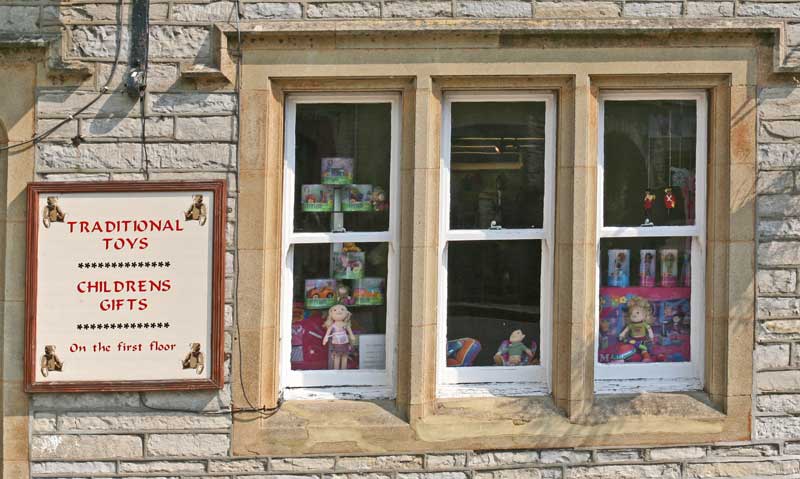
Next, on each village plaza, a 6-10 bed nursing care facility that serves both low-maintenance residents and those requiring a high level of 24-7 support. The end of life can be uncomfortable, but in this town in Mallorca, elders, no matter how infirm find the town is accessible – they remain in their familiar haunts with people they love.
